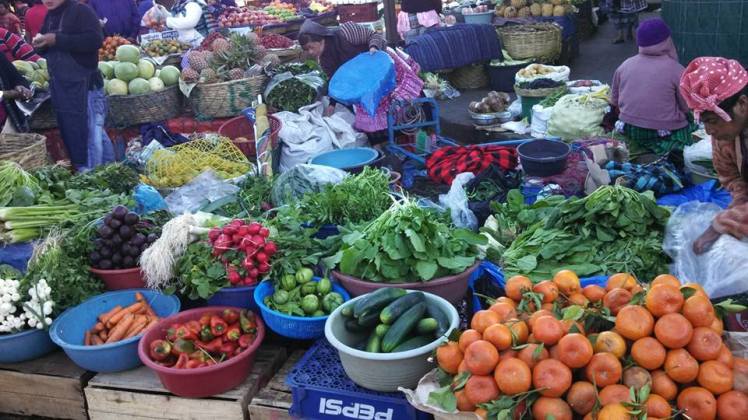I’m a proud foodie, but not your average American foodie who seriously believes that Chipotle is the epitome of quality Mexican food. In fact, nothing makes me run faster than seeing that brick-red and white chili logo beaming in the distance. As I stomp home to marinate my own carnitas, I often find myself thinking about all the amazing foods I get to indulge in while traveling abroad. I live for street food in Xelajú, Guatemala, hole-in-the-wall pupusa counters in San Salvador, El Salvador, and fresh home-cooked bento in Osaka, Japan. It’s no secret that traveling and eating make the absolute perfect couple. However, when eating abroad, there’s always a risk of getting extremely sick, especially when consuming foods that your body isn’t used to digesting. So, for my fellow wanderlust divas (and men who have found themselves here), the following are a few tips I have compiled through both research and trial and error on how to eat to your heart’s delight while abroad, without acquiring stomach viruses, fevers, or anything similar to E. Coli, for that matter!
1. Do Your Research Prior to Traveling

Cliché, isn’t it? I feel as if research is listed as the first step to almost everything in the world of online advice. However, when it comes to your health and wellbeing, this step is vital. Always take time to learn about popular food and drink in the country you plan to visit, and how people typically prepare and serve these items. It’s also wise to know if your travel destination is currently undergoing a development process, is lacking in infrastructure, or is simply operating by different safety standards, so that you can be aware of potential health risks. If the country you are visiting has unclean tap water, you should know! The State Department’s website, travel.state.gov, provides comprehensive background information on anywhere you could ever want to go. Take advantage! https://travel.state.gov/content/travel/en.html
2. Stick to Meals that are Served Hot
As a general rule, foods that have been cooked are safer to consume because adding heat typically kills existing bacteria. So yes, you CAN go to the pupuseria in San Salvador! Simply ensure that whatever you are eating is cooked thoroughly, and is served hot off the stove or out of the oven. This is especially true for street food. Try to avoid foods, drinks, and homemade condiments that have been sitting out for a while, which is often the case with public buffets and street carts. Street food safety regulations are often different than standards that are upheld at a restaurant, so always exercise caution!
3. Wash Fruits & Veggies Thoroughly

One of the most exciting things to do while traveling abroad is to sample all the delicious produce you’ll probably never see at your local Walmart. However, properly washing fruits and veggies in order to prevent diarrheal illnesses (I don’t need to explain any further.) In many cases, quickly rinsing the fruit with water does not suffice. If you are traveling to a country where the tap water is unsafe to use, it’s wise to invest in a product such as Microdyn, which disinfects the skin on all types of produce. Otherwise, simply stick to consuming only cooked produce, or raw produce with a thick skin that can be peeled, such as bananas and oranges.
4. Wash Your Hands Often

Well, this is probably the part where you roll your eyes and say “No, DUH,” but simply knowing the information is not enough. It’s easy to get caught up in the hustle and excitement of exploring a land you’ve never visited before; hand-washing can sometimes be put on the back burner as you try to do and eat all you can. Consistent hand-washing however, is vital in order to protect yourself from a plethora of infectious diseases. After applying antibacterial soap to your hands, actively scrub them under water for at least twenty seconds. Be mindful of when you may need to go wash your hands, and get it done. After coming from Guatemala with two kinds of illnesses, I am anal about this. It’s also a good idea to keep travel-sized hand sanitizer handy for when you can’t get to a sink, or if you can’t use the water. If you are traveling in a group, you’ll make a lot of friends by carrying hand sanitizer ;).
5. What About Liquids?

Within several travel destinations, be careful when consuming water, milk, and fruit juices. Bottled water is always safe; the same typically goes for milk and juice. As for open containers of liquids sold on street carts, many of them have sat out in room temperature for extended periods of time. In rural areas of many countries, milk, butter and cheese are often unpasteurized; such milk products should be avoided if one has a weak immune system, or has never consumed these raw products before. Consuming unpasteurized milk products has led to a myriad of outbreaks in the United States, so abiding by that tip is necessary . Fruit juices in open containers should be avoided unless you know for a fact that the fruit used to make it has been properly disinfected.
These are only the basics of what all one should keep in mind in order to stay healthy while eating abroad. As you start to travel more frequently and your system changes, you may find that some of these tips may not apply to you (I doubt it), OR that more things affect you than what is listed here. Because every country is different, and regulations are ever-changing, it is wise to consistently utilize online sources such as Travelers’ Health from the Centers for Disease Control, and, as listed earlier, travel.state.gov. So, don’t be paranoid, but eat wisely!
I wish you all safe, happy and yummy travels for the year 2016!
 Random produce stand I captured in a marketplace in Xela
Random produce stand I captured in a marketplace in Xela
Sources: Tyrgyzistan, Ze Na Cozinha, Nattaya, Karenlakeman



